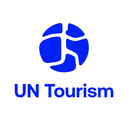UNWTO and Google Launch Global Partnership to Lead Tourism Recovery
The World Tourism Organization (UNWTO) and Google have signed a new agreement to work together and lead global tourism’s recovery through innovation, education, and market intelligence.
The new Memorandum of Understanding (MoU) builds on past cooperation between the UN specialized agency for tourism and Google. With destinations in some parts of the world looking to restart tourism, the new partnership will focus on harnessing the power of innovation, education, data and market intelligence to drive sustainable and inclusive recovery.
Notably, the two organizations will host trainings for Destination Management Organizations (DMOs), using a new Capacity Building Curriculum developed by Google. These sessions will empower destinations to switch to digital, with the training adapted to reflect their specific circumstances and the unique challenges every destination currently faces.
Scaling up collaboration…
The new Capacity Building Curriculum will also complement existing joint initiatives, and a data sharing agreement for Google’s Travel Insights to power a portion of the UNWTO's tourism recovery tracker.
The strong partnership between UNWTO and Google will help put innovation and digital at the centre of tourism’s recovery
Alongside this, the Tourism Accelerator Program, designed by Google in partnership with UNWTO, will also be scaled up globally. A pilot program launched across EMEA (Europe, Middle East, Africa) in 2020 showed the value of working with policymakers to put digital at the heart of their tourism recovery plans and the benefits of upskilling DMOs so they can make effective use of data and market intelligence.
…and diversifying
The partnership will go beyond empowering destinations and businesses during the immediate recovery phase. Under the agreement, Google will provide ongoing support for a number of UNWTO’s leading initiatives, including Startup Competitions designed to promote and support innovation across the sector.
UNWTO Secretary-General Zurab Pololikashvili says: “The strong partnership between UNWTO and Google will help put innovation and digital at the centre of tourism’s recovery. By working together, UNWTO and Google will empower destinations, businesses and tourism workers to realize the power of data and market intelligence, both increasingly important as global tourism looks to restart and recover.”
We’re honored to be working alongside UNWTO in this vital effort to support the global tourism sector on its path toward broader economic recovery
Google’s Managing Director for Travel Partnerships Gianni Marostica says: “We’re honored to be working alongside UNWTO in this vital effort to support the global tourism sector on its path toward broader economic recovery. It’s critical that both policymakers and businesses have the tools and insights they need to reconnect with travelers in a digital environment.”
Looking ahead, UNWTO and Google will also collaborate on joint research projects related to tourism. The results will further establish both parties as thought leaders and provide governments, destinations and businesses with the trusted data and insights they need to guide tourism towards recovery.
RELATED LINKS
- UNWTO & Google Acceleration Programme
- Travel digitally with Google on World Tourism Day
- UNWTO Grow with Google Masterclass on Digital Marketing and Promotion In collaboration with Turismo de Portugal
- Guiding tourism's recovery
About UN Tourism
The World Tourism Organization (UN Tourism) is the United Nations agency responsible for the promotion of responsible, sustainable and universally accessible tourism.
As the leading international organization in the field of tourism, UN Tourism promotes tourism as a driver of economic growth, inclusive development and environmental sustainability and offers leadership and support to the sector in advancing knowledge and tourism policies worldwide.
Our Priorities
Mainstreaming tourism in the global agenda: Advocating the value of tourism as a driver of socio-economic growth and development, its inclusion as a priority in national and international policies and the need to create a level playing field for the sector to develop and prosper.
Promoting sustainable tourism development: Supporting sustainable tourism policies and practices: policies which make optimal use of environmental resources, respect the socio-cultural authenticity of host communities and provide socio-economic benefits for all.
Fostering knowledge, education and capacity building: Supporting countries to assess and address their needs in education and training, as well as providing networks for knowledge creation and exchange.
Improving tourism competitiveness: Improving UN Tourism Members' competitiveness through knowledge creation and exchange, human resources development and the promotion of excellence in areas such as policy planning, statistics and market trends, sustainable tourism development, marketing and promotion, product development and risk and crisis management.
Advancing tourism's contribution to poverty reduction and development: Maximizing the contribution of tourism to poverty reduction and achieving the SDGs by making tourism work as a tool for development and promoting the inclusion of tourism in the development agenda.
Building partnerships: Engaging with the private sector, regional and local tourism organizations, academia and research institutions, civil society and the UN system to build a more sustainable, responsible and competitive tourism sector.
Our Structure
Members: An intergovernmental organization, UN Tourism has 160 Member States, 6 Associate Members, 2 Observers and over 500 Affiliate Members.
Organs: The General Assembly is the supreme organ of the Organization. The Executive Council take all measures, in consultation with the Secretary-General, for the implementation of the decisions and recommendations of the General Assembly and reports to the Assembly.
Secretariat: UN Tourism headquarters are based in Madrid, Spain. The Secretariat is led by the Secretary-General and organized into departments covering issues such as sustainability, education, tourism trends and marketing, sustainable development, statistics and the Tourism Satellite Account (TSA), destination management, ethics and risk and crisis management. The Technical Cooperation and Silk Road Department carries out development projects in over 100 countries worldwide, while the Regional Departments for Africa, the Americas, Asia and the Pacific, Europe and the Middle East serve as the link between UN Tourism and its 160 Member States. The Affiliate Members Department represents UN Tourism's 500 plus Affiliate members.
